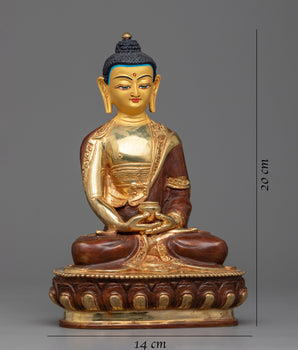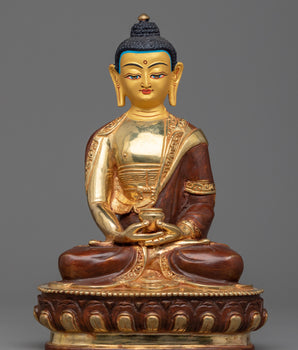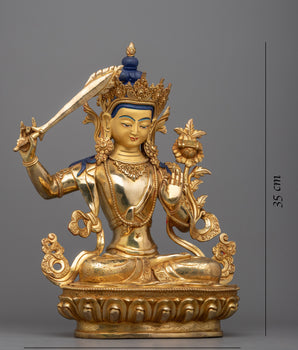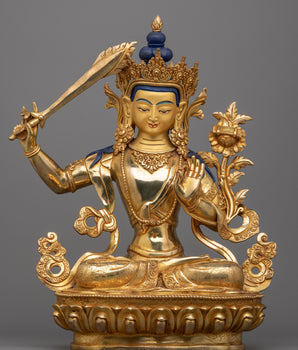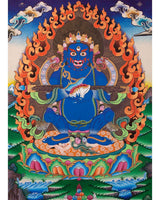
Sakya Mahakala Thangka | Wrathful Dharmapala Vajra Panjarnatha | Buddhist Wall Decor

100% AUTHENTIC

HANDMADE

FREE SHIPPING
Sakya Mahakala Thangka
About Our Thangka :
Our thangka is a handpainted Tibetan art done using traditional methods. It is a unique piece created using genuine 24K gold and natural stone colors.
Introduction to Mahakala
Mahakala looks wrathful and is bedecked with serpents. He wears a garland of severed heads and a crown of five skulls , which represents five poisons of delusions namely lust , hatred , ignorance , pride and jealousy transformed into the wisdom of five Buddhas . His right hand holds a kartri symbolizing that he has cut off ego , clinging , and attachment . His left hand holds a kapala filled with blood symbolizing the subjugation of the evil . Since , there are many forms of Mahakala such as two armed , four armed and multiple armed ; the deity holds different objects according to it’s different manifestations . He also wears a tiger skin symbolizing the purification of desires . He has three eyes symbolizing his clear comprehension of Three times . He looks ferocious against a background of blazing fire .
His two feet symbolize wisdom and method . His ferocious appearance aside , Mahakala is a manifestation of Avalokiteshvara , the embodiment of universal compassion .
In this Tibetan art form, he is portrayed carrying a wooden gong(Gandhi), skull bowl, and vajra holder. Sakya Mahakala, also known as Gonpo Panjarnatha, is the most popular guardian of the Sakya sect.
-----------------------------------------------------------------Size: 15"/ 38 cm (width) x 20"/ 50 cm (height)
Materials: Cotton Canvas, Acrylic Colors, Genuine 24K Gold
------------------------------------------------------------------
THIS THANGKA IS HAND-PAINTED IN THE TRADITIONAL STYLE AND THE QUALITY IS HIGH
How does mold damage a Thangka ?
A humid room without air circulation is the perfect environment for mold growth. If a thangka in such a room becomes damp or wet, mold will grow on it. This growth can badly damage the cloth, the pigment, and the binder. Molds form a fuzzy coating on the thangka.
Shipping & Returns
We ship worldwide. Orders dispatch in 2–3 business days. International delivery typically arrives in 4–10 business days via DHL Express, depending on destination and carrier conditions. All items ship free globally.
Returns are accepted within 14 days of delivery. Products must be returned in original condition for a refund to be issued once received and inspected. Terms and conditions apply.






